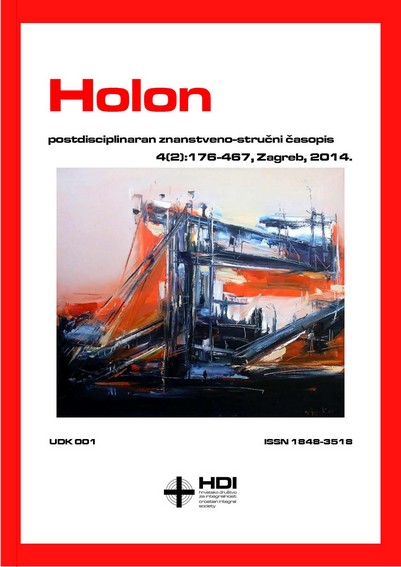

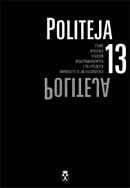
This paper is an analysis of the category of power in Michel Foucault’s philosophy. In the whole work of the philosopher it is definitely abused and often used as a hyperbole or a metaphor only, not as a specific social relation. I argue that especially in Foucault’s writings of 1970s the category of power is used not only as a hypothesis, but also as a justification, which makes much of Foucault’s interesting analysis only a postmodern narrative. In this respect philosophy of Foucault remains Hegelian, trying to enclose the rich experience of European modern culture in one mind, with one superior rule.
More...Keywords: pure representation; tautologous sign; absence/presence; phenomenology; poststructuralism
The article looks at Velázquez's Las Meninas through the prism of phenomenology and poststructuralism. It takes as its starting point Foucault's assertion that the painting is quintessentially an example of pure representation characteristic of the Classical age, as Foucault defines it. The article strives to show pure representation as a self-posited structural organization resembling nothing but itself, and consequently interprets Las Meninas painting as a philosophical metaphor of the functioning of tautologous signification. This necessarily leads to the radicalisation of Foucault's archaeology by extending the boundaries of the modern episteme to include the painting Las Meninas. Furthermore, the essay reflects on the implications of such an interpretation, namely on the interplay between the interpretation and the interpreted, on the self-referentiality of the poststructuralist discourse that subsumes all history of ideas within itself.
More...
Keywords: disability; modern understanding of disability
Social issues related to disability can be seen from many perspectives. But its rare to analyse this issue from philosophical point of view. Thought of Michel Foucault, the French philosopher, with no doubt, can be linked to the modern understanding of disability. In the light of his ideas human body is not just the problem of the individual, but it belongs to much wider social conditions. From this point of view subjectivity of people with disabilities is also a part of social creation. This article deals with disability in terms of Foucault philosophy and tries to compare this problem to issue of discursive subject construction.
More...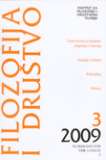
Keywords: Deleuze; Foucault; diagramme; agencement; histoire; mutation; machine
Pendant les années 1970, Gilles Deleuze élabore avec Félix Guattari et Claire Parnet les concepts d’agencement et de diagramme: au moins jusqu’à Mille plateaux (1980), agencement et diagramme – rebaptisés machine concrète et machine abstraite –, constitueront le soubassement théorique de l’ensemble du travail de Deleuze. Or, l’idée de diagramme doit beaucoup au Foucault de Surveiller et punir avec lequel Deleuze mène un dialogue théorique ininterrompu pendant ces années– là: elle cristallise pour lui un enjeu de taille, celui de penser la mutation des structures historiques hors des schémas dominants du structuralisme et du marxisme. Deleuze, penseur du devenir, se confrontant à Foucault, historien–généalogiste des transformations: au coeur de cette confrontation sur le diagramme, surgissent deux conceptions distinctes de la mutation que Deleuze s’efforce de concilier dans son livre sur Foucault.
More...
Keywords: Blanchot; Céline; Foucault; ordre; littérature; roman; modernité; archéologie
This article is not a comparative study of the works of Blanchot, Céline and Foucault. Our ambition is much more focused: we would like to experiment, through a series of analyses and observations, the place that literature occupies and invest in these authors’ texts. Such texts, in spite of seeming much different, are however profoundly similar because they all concentrate on the theme of the outside (le dehors) which is inseparable from Blanchot’s name. In all the three projects, literature has a similar task: to enquire about the nature, the ideas and the mythical spaces of the twentieth century. The effect of these explorations is to move the core of the ‘order of things’ in favour of new off-centre areas, those where literary speech finds its origin. As three different impossible but yet existing scenes, Thomas l’Obscur, Voyage au bout de la nuit and Les Mots et les choses draw the negative map of the experiences of order in the era of modernity.
More...
Keywords: Cultural revolution; critique, art of reigning; Christian priesthood; art of existence; common good; sexuality; postmodernity
The aim of the present article is to reveal the essential connection of MichelFoucault’s critical attitude regarding social relationships with the formation of thepostmodern ethos of making out of the human life an artwork. It will be shown thatthe main object of Foucault’s critique are the relations of power and knowledge inthe Christian priesthood and their modern transformation in nonreligious institutions.From this point of view, mainly based on the philosophy of Friedrich Nietzsche,the Christian ethics occur to be an accumulation of techniques of disciplinizationand normalization. This attitude towards Christianity and modernity leads to thepostmodern ethos of making out of life an artwork. This notion is mainly based onthe antique Greek and Roman philosophy, where instead of obeying to universalethical principles the human being struggled to be his own master. Therefore thepostmodern existence tries to be beyond all traditional boundaries, which resultsin the danger of neglecting the historical fact, that Christianity was and still is animportant institution of the Western Civilization
More...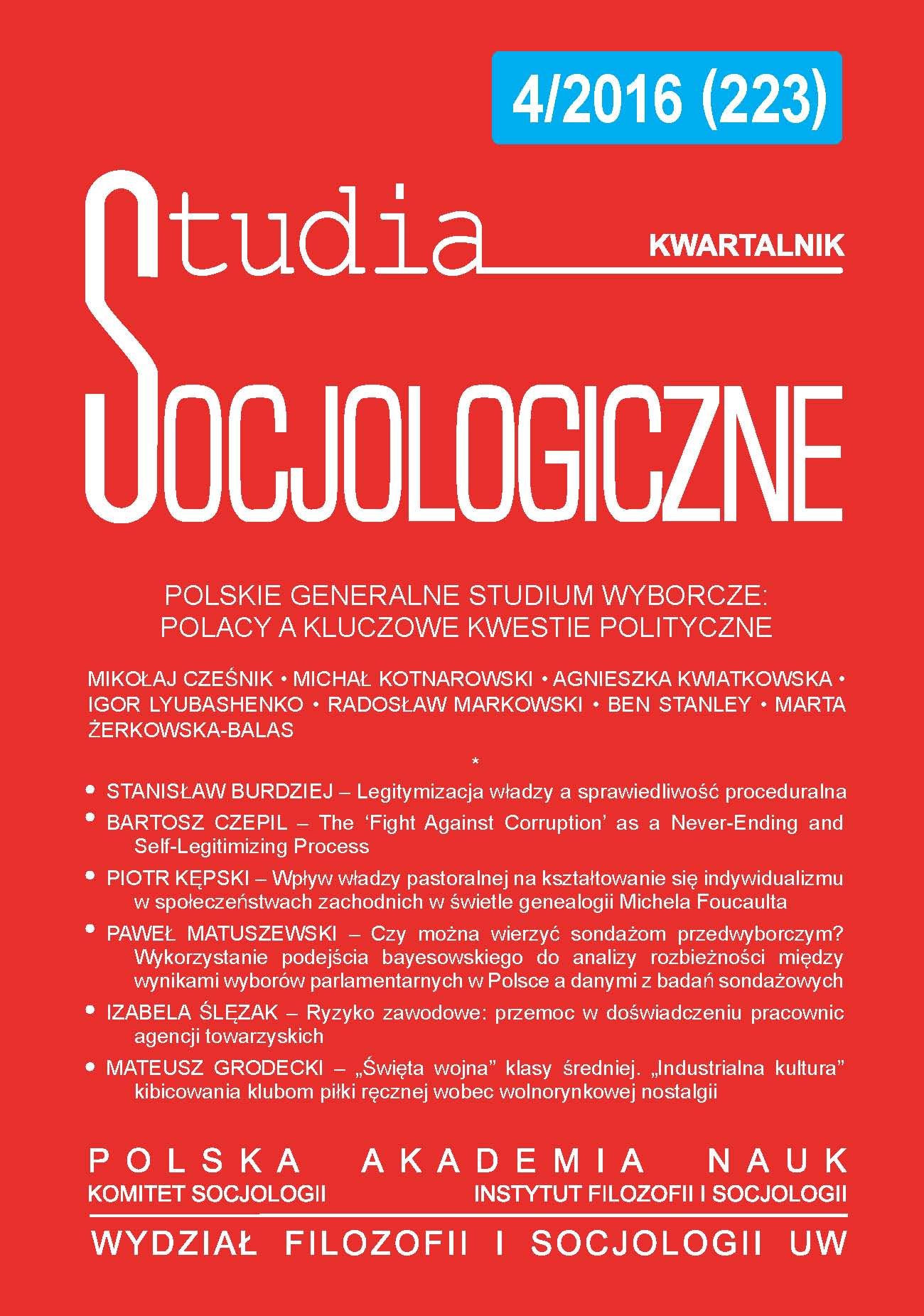
Keywords: Pastoral Power; individualism; Christianity; Foucault; subjectivation techniques; free will; genealogy
This article presents an analysis of the influence of Christian pastoral power on the formation of individualism in Western societies. The point of reference is the concept of pastoral power put forward by Michel Foucault, who treated the power of the Catholic Church over believers as a specific rationale of ruling focused on the formation of individuals and communities. The study refers to Foucault’s genealogical method, which investigates the impact of power and knowledge on the historical development of contemporary philosophical and social ideas. This analysis shows Christianity to be predominantly an individualising religion influencing the process of shaping the human subject as an individual. Pastoral power, using subjectivation techniques such as introspection, examination of one’s conscience, confession, asceticism, self-control of one’s body and sexuality, and interpreting and reading the Bible, has contributed considerably to the formation of responsible, ethical, and self-disciplined individuals. Christian belief in free will and individually attributed sin or virtue has played a key role in the development of the contemporary concept of an individual who is de jure free and bears responsibility for his or her deeds. The article points to the important role of the Protestant Reformation, which contributed to the privatisation of religion and facilitated the process of individualisation in Western societies.
More...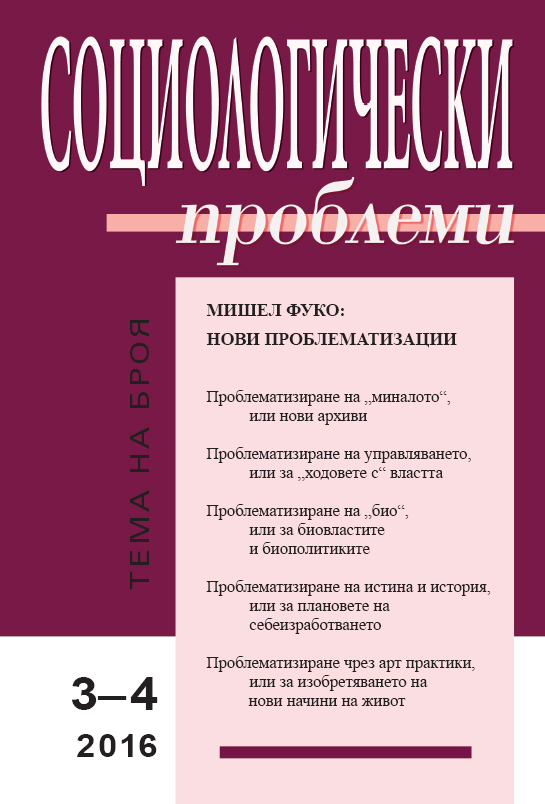
Keywords: Foucault; neoliberalism; non-normative critique; anti-statism; the left
The essay questions the recent wave of authors claiming that Foucault became ‘seduced’ by neoliberal thought and ended up endorsing it. It does so by a thorough examination of two books that makes the claim, but with radically different explanations for the fact that Foucault engaged himself with neoliberalism. By analyzing the textual ‘evidence’ of the proponents of the ‘seduction theses’ the essay shows that its premises are rather flawed. Firstly, the lack of normative denunciations in Foucault’s writing on neoliberalism cannot be taken as an endorsement, but as integral to a specific way of conducting ‘non-normative critique (Hansen 2016). Secondly, Foucault’s supposedly anti-statist position is questionable when one reads his lectures carefully. In fact, Foucault’s explicitly distanced himself an “inflationary” critique of the state, identifiable on the extreme left as well as in neoliberal thought.
More...
Keywords: Foucault; biopolitics; health; struggle for abortion rights; reproductive rights; activism; Groupe Information Santé
This piece is an edited and abridged excerpt from Chapter Six of Foucault: The Birth of Power, Polity Press, 2017. It discusses the work of the Groupe Information Santé, an activist organisation established in France in 1972 on the model of the more famous Groupe d’Information sur les Prisons. The GIS comprised doctors, sociologists and philosophers, and its most famous member was Michel Foucault. There were many projects that the group worked on, including industrial accidents and sickness, the health of immigrants, and the struggle for abortion rights. Drawing on their publications, pamphlets, archival material and news reports, this piece discusses the importance of the group, especially concerning reproductive rights and sexual politics more generally. One of the group’s key aims was to provide people with free access to information so they could make informed choices. The piece therefore provides another example of Foucault’s involvement in radical activism in the early 1970s, though his was only one voice in the movement and it stresses the collaborative nature of the project.
More...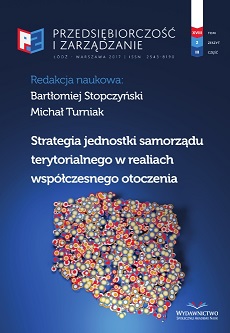
Keywords: management control; social theory; M. Foucault;
The purpose of this article is to evaluate the usefulness of Foucault theory to study the Polish regulation of a management control of public finance sector. The thesis is that regulatory system management control – from the perspective of Foucault social theory – should be placed between the Panopticon approach to power and the concept of „governmentality” (gouvernementalité). In order to justify formulated thesis the literature study were conducted and critical analysis method was used – based on Foucault’s approach. The article outlines the characteristics of M Foucault’s social theory and analysis of regulations in the field of management control in the public finance sector, utilizing elements of this theory.
More...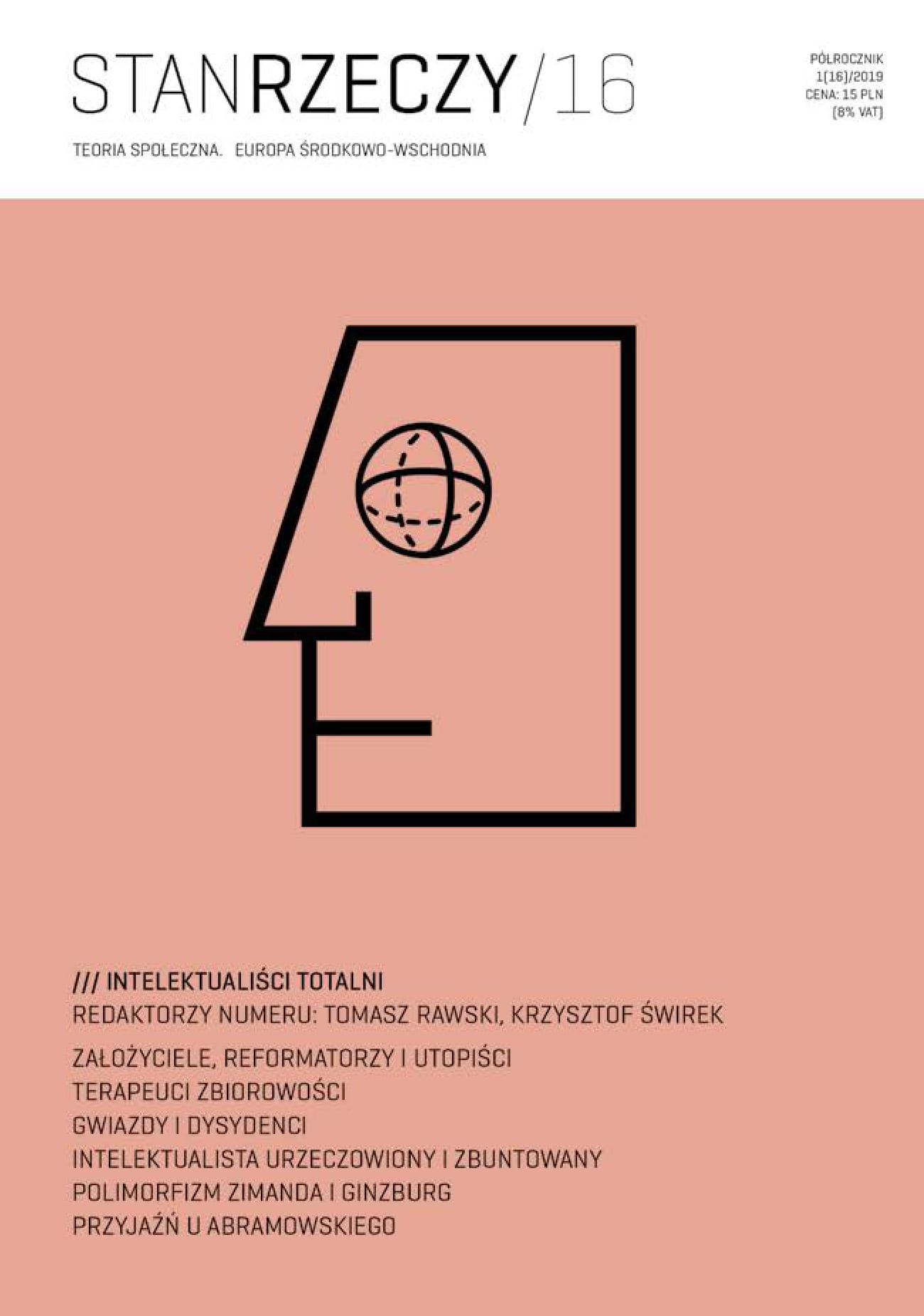
Keywords: academic field;intellectual;philosopher;public
In this article the author considers the differences between Foucault and Deleuze in defining the role of a philosopher as a public intellectual. The context for the analysis is the specific position of a philosopher in the academic field – between the university, where career advances may be curtailed, and the obligation to act publicly as an intellectual. The text focuses on perceptions of who a philosopher is as a “thinker” and as an “engaged intellectual” and on how these perceptions harmonized with tensions and transformations in the discipline in the twentieth century.
More...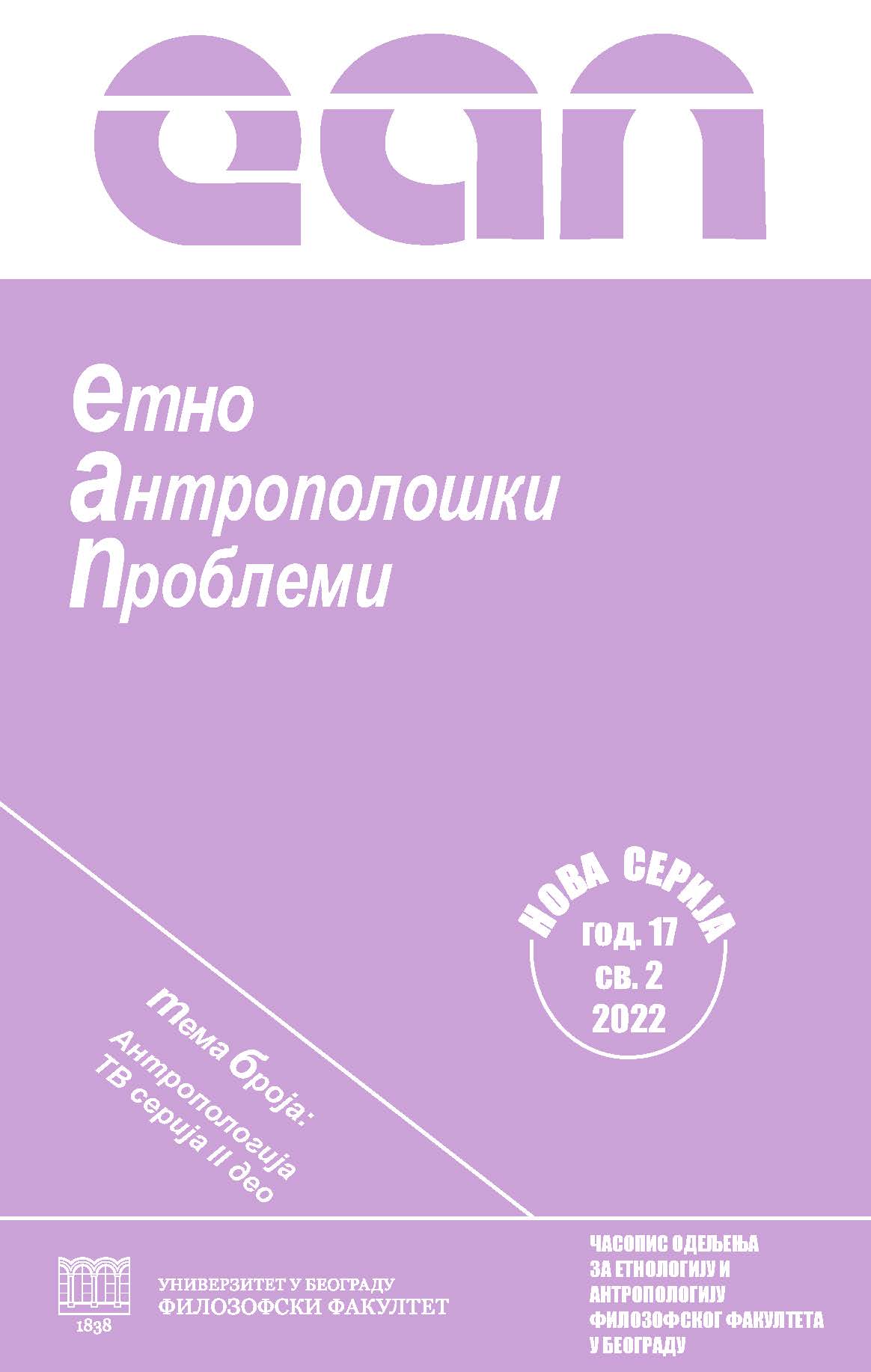
Keywords: neoliberalism; subjectivity; intellectuals; theory of governmentality; homo economicus; social context; history of ideas
This paper explores the place neoliberalism has in Foucault’s opus and the reasons he turned to studying subjectivity in the latter part of his career. We will follow the thematic, theoretical, and methodological changes in Foucault’s work and show how they relate to the social context. We will claim that Foucault, due to his political engagement, gives a political dimension to his work by putting it in the service of political goals. The article starts by researching how the social context influenced the beginnings of Foucault’s work in order to show how even then the changes in the French political scene influenced his thought. Afterwards we move on to the period after the rebellion of 1968 when Foucault was working with radical Maoist organizations. It is here that we find the first form of politicization of his intellectual work. We argue that due to the conflict between progressive French intellectuals and the “Communist party of France” in the second half of the 1970s Foucault turned to studying the history of liberalism in order to find a conceptual framework for a new non-communist left politics. This can be seen as a second form of politicization of his intellectual work and Foucault’s study of neoliberal ideas can be located here. We claim that since this research is placed at the very end of his history of governmentality it is here that Foucault found a conceptual framework suitable for a new left politics. For him this politics would be based on the pursuit of an ever greater autonomy of the individual and his subjectivity. Therefore, after studying neoliberalism Foucault turns to studying subjectivity which we understand as a third form of politicization of his intellectual work. We argue that he conceptualized the “care for the self” as a form of subjectivity which is supposed to play the role of an ethical ideal for a new left politics. The paper concludes with a segment in which we contrast our claims with the claims of other authors that studied Foucault’s relation to neoliberalism and his turn towards studying subjectivity.
More...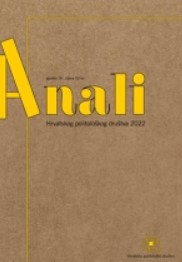
Keywords: Constructivism; public policy; truth, Foucault; knowledge; power;
The goal of this paper is to bring together the constructivist approach to public policy and Michel Foucault's concepts of knowledge, power, and truth, and to synthetize useful insights for public policy research from that connection. First, the characteristics of the constructivist approach are elaborated, and commentary is provided on the distinction between "rigid" and "soft" constructivism, and the answers to certain criticisms of constructivism are provided. Then, Foucault's concept of truth is elaborated in detail, as well as other important concepts in Foucault's conceptual apparatus such as knowledge, power and discourse. Finally, the connection between Foucault's work and constructivism is presented. The overarching question of the paper is the question of the possibility of establishing objective truth in the area of social sciences, and the relevance of objective truth for public policy and the political field in general.
More...
Keywords: subject; genealogy; self-creation; modernity; Nietzsche; Foucault
This article aims to show Foucault’s adaptation and creative development of Nietzsche’s findings on the production of subjects through the interplay of, closely related, knowledge and power. What I am exclusively interested in is the problem of this production, or forming, of individuals. Because both authors have a lot of revealing things to say on it, I would like to analyse their concepts as complementary and, to some extent, mutually explanatory and … corrective. Showing the specific mechanisms of power in modern society allows Foucault to reveal certain aspects of today’s subjectivity that would be difficult to see from the perspective adopted by Nietzsche. His research therefore significantly complements Nietzsche’s account of our becoming what we are. But I also believe that the conclusions which Foucault draws from his creative interpretation of Nietzsche’s revolutionary insights can be corrected, or significantly supplemented, by some ideas that can be found in Nietzsche’s work itself.
More...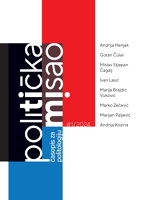
Keywords: response to a review; political theory;
U prvom broju časopisa Politička misao za 2023. u rubrici “Osvrti, prikazi i recenzije” objavljen je opsežan osvrt na moju knjigu Konformizam radikalne misli (Disput, Zagreb, 2023). Da je kojim slučajem sve ostalo na prvih desetak kartica tog priloga, ne bih odgovarao – bilo bi deplasirano reagirati na negativnu recenziju. Dapače, cijenio bih to kao postupak koji je prilično rijedak u našoj akademskoj zajednici u kojoj negativne recenzije obično zamjenjuje kuloarsko ogovaranje i čuvena hrvatska šutnja. No autor priloga Krešimir Petković nije se zadržao u okvirima neslaganja u tumačenju, nego je izgubio mjeru i našao se u vlastitom tekstu, ali u drugom žanru. U žanru za koji se opredijelio Petković, odnosno u onome u što je pretvorio svoju “recenziju”, pojavljuju se brojne, što sitne što krupne, falsifikacije, jednako kao i namjerno podrugljive kvalifikacije. No moji razlozi za to da odgovorim nisu vezani samo uz razne jeftine dosjetke koje bi trebale biti uvredljive na moj račun, a kojima je ukrašen taj prilog, nego proizlaze iz potrebe da se razgrnu neki prividi koji mogu nastati na temelju čitanja Petkovićeva “prikaza”.
More...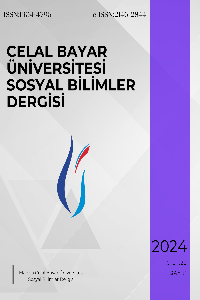
Keywords: Power; Subject; Law; Rights;
This study discusses law and rights in the context of Michel Foucault's problematization of power. Foucault, especially in his early theoretical works, criticizes law and human rights within the framework of power practices. In this context, he draws attention to the regimes of truth and power mechanisms in which the subject is produced. In his late political discourses, he emphasizes the importance of the struggle for human rights. This study argues that there is no radical rupture between Foucault's early and late period and claims that his positive approach to law and human rights does not contradict his general thoughts. In Foucault's thought, rights are not elements bestowed on human beings through a transcendent power, nor are they metaphysical certainties that one is born with. Rights are political practices of performative character that are not based on a particular idea of human nature or humanity, but rather come into being and interact in strategic practices.
More...
Keywords: parrhesia; rape; politics; Foucault; Creusa
The article addresses the issue of truth-telling or parrhesia in politics. The author draws onMichel Foucault’s late lectures on this topic while simultaneously questioning Foucault’sinterpretation of the ancient prototype of parrhesia from Euripides’s play Ion. The analysishighlights Foucault’s “masculine arrogance,” as he consistently overlooks, obscures, ortrivializes the fact that the first instance of parrhesia was a woman’s accusation againsther rapist. An alternative, more attentive reading of Ion brings questions about the statusof sexual violence in politics and acknowledges the importance of non-citizen femalevoices in the political field.
More...
Keywords: Michel Foucault; Gothic fiction; literary modernity; French philosophy
The object of the present study is a particular literary reference that repeatedly appears in Michel Foucault’s work — a reference to the work of Ann Radcliffe. We present a close study of the passages where Foucault, in one way or another, deals with Ann Radcliffe’s novels (or novels that he believed to be written by Radcliffe), and attempt to show that Foucault’s interest in the “literature of terror” is not at all accidental. For Foucault, Gothic fiction is a literary “embodiment” of the historical transition from classicism to modernity.
More...